

Tao Te Ching
Search Sages
Enter all or part of an sage's name or biography in the fields below, then press tab or enter to filter the list of Authors. Click the headings Name or Biography to sort by that column. Diacritics are ignored when searching.
Click on the author's name to go to their page.
| Author Name | Biography |
|---|---|
| Erasmus |  Erasmus Erasmus"Greatest scholar of the northern Renaissance" "Prince of the Humanists,” famous translator, globalist and true citizen of the world; Erasmus emphasized a middle way approach between Luther and the Pope during the Reformation angering both sides. Not many know much about about him but his legacy is well known in the sayings and phrases he compiled and popularized. Some of his sayings like “The grass is always greener on the other side of the fence,” “God helps those who help themselves,” “Don’t put the cart before the horse,” “Leave no stone unturned,” “In the land of the blind the one-eyed man is king,” “No sooner said then done,” “Between a rock and a hard place,” “Call a spade a spade,” “Women – can’t live with them or without them,” “Like father like son,” “To look a gift horse in the mouth,” “To break the ice,” “To cut to the quick,” “One step at a time,” “A necessary evil,” “What’s done cannot be undone,” “Up to his eyeballs,” “To sleep on it,” have not only entered into common conversation; but also, become a powerful influence on Western culture. |
| Mary Catherine Bateson | 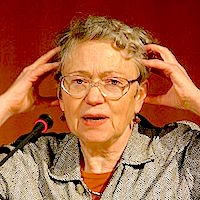 Mary Catherine Bateson Mary Catherine Bateson“ Dr. Spock’s first baby,” daughter of Margaret Mead and Gregory Bateson, and after having “the best-documented childhood in the United States,” Mary carried on her parents’ intellectual and anthropological tradition writing and teachings in places like Harvard, George Mason University, and Amherst as well as leading organizations like the Institute for Intercultural Studies in New York. When a freshman in college after attending one of her mother’s lectures with a boyfriend, she lamented the possibility of ever having a good marriage after her mother and father’s example; she agreed to an engagement and wound up married to that same boyfriend for over 50 years. |
| Thomas Edison | 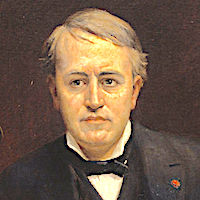 Thomas Edison Thomas EdisonAmerica's greatest inventor “America's greatest inventor,” businessman, and entrepreneur; Edison set up the world’s first industrial research laboratory, first film studio, and held in his name over 1,100 US and foreign patents in many fields including electric power, communications, and motion pictures (his film studio made almost 1,200 films.). Some of his most influential inventions include the light bulb, phonograph, motion picture camera, the fluoroscope, the tasimeter, and the nickel-iron-battery. Henry Ford was a neighbor and employee who Edison helped with his business ventures. A victim of nepotistic seductions, Edison had to take his son to court for using their family name to promote scams, snake-oil products, and fraudulent ventures. He joined Blavatsky’s Theosophical Society, became a strict vegetarian, and promoted nonviolence. |
| Daniel J. Boorstin | 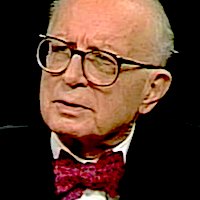 Daniel J. Boorstin Daniel J. Boorstin American intellectual Paul Revere “An intellectual Paul Revere,” American historian, US Congressional Librarian, Rhodes Scholar, and Pulitzer Prize winner; Boorstin became a Communist Party member when young, a prominent conservative in later life. Promoting the "consensus school" of history, he praised entrepreneurs and inventors, criticized conformity, bureaucracy, slavery to tradition, and an historical emphasis on class conflict. On a parallel track with Marshall McLuhan he praised, analyzed, and warned about the unintended consequences and social upheaval that inevitably arises from new technology. With self-effacing insight, he looked deeply into American culture both praising and criticizing aspects of this unprecedented historical experiment. |
| Lǐ Yú | 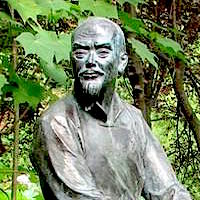 Lǐ Yú Lǐ Yú“Artist of Living, playwright, actor, director, poet, novelist and "writer-entrepreneur;” Li Yu dropped out of the imperial exam process and instead of becoming an official traveled through China with his own acting troupe writing plays, acting and directing. A daring and creative writer described by biographers as the “most versatile and enterprising writer of his time,” he wrote the Carnal Prayer Mat which became a Chinese erotic classic, Errors caused by the Kite that endures as a Chinese opera favorite, The Arts of Living that continues its influence on practical wisdom, and translated many popular essays. |
| Niguma | 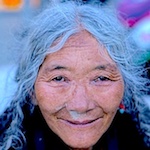 Niguma Niguma“Dakini of timeless awareness,” co-founder of the “secret lineage,” the Shangpa Kagyu school of Vajrayana Buddhism, wife and later disciple of mahasiddha Naropa, teacher to Marpa the translator; Niguma wrote 13 books basic to the Tibetan Buddhist tradition and had a deep and continuing influence on the foundations and practices of Buddhism in Tibet and other countries. One of the most important and influential teachers of her time, she established a complete set of spiritual practices called the Six Yogas of Niguma that is still practiced, studied and greatly appreciated today. |
| George Carlin | 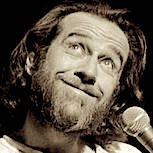 George Carlin George CarlinOne of the most influential social commentators of his time “Dean of counterculture comedians,” host of the first Saturday Night Live in 1975, and one of the most influential social commentators of his time; Carlin, with skill and insight, fearlessly challenged the status quo and ceaselessly poked fun at America’s most revered sacred cows. Arrested and at the center of a 1978 U.S. Supreme Court case, he transcended comedy and became a social psychology and political influence. Admired and an inspiration for Larry King, Jon Stewart, Bill Maher, Lily Tomlin, Jerry Seinfeld, Garry Trudeau, and many more; he skillfully brought the courage and iconoclastic willingness common with most of our lineage holders into 20th century world culture. |
| Shennong | 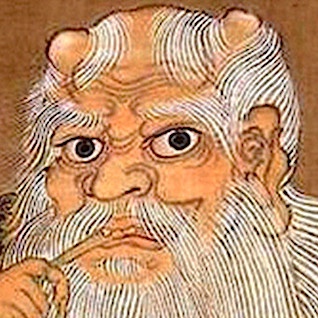 Shennong Shennong“Father of Agriculture” and Traditional Chinese medicine “Father of Agriculture” and irrigation; inventor of the plow, axe, rake, digging wells, preserving seeds, cultivating grain and the farmer’s market; Chinese history also credits Shen Nung with developing science and the use of herbs for medicine, moxibustion, taking pulses, and acupuncture. Said to have discovered tea, he is also quoted in the I Ching and the Huainanzi. Wandering through remote mountains and plains, he identified and then cultivated rice, wheat and millet; tasted and tested hundreds of herbs, developed the first pharmacopoeia and Traditional Chinese medicine. |
| Paracelsus | 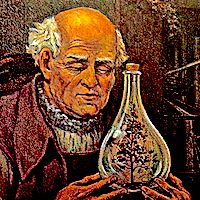 Paracelsus ParacelsusRevolutionary, shamanistic alchemist “Father of toxicology,” alchemist, medical revolution pioneer, and astrologer; Paracelsus was venerated by the Rosicrucians, intensively studied by Carl Jung, and revered by future physicians who universally recognize his medical contributions. He criticized the popular purging and bloodletting techniques of his time as well as the practices of applying cow dung to wounds. He revolutionized medicine by conceiving clinical diagnosis, promoting the keeping of wounds clean, anticipating Germ Theory, using specific instead of cure-all medicines, doing medical experiments on animals, treating mentally ill as treatable instead of possessed by evil spirits, discovering that syphilis is contracted by contact, that “poor blood” can be improved with iron, and creating the terms "chemistry," "gas," and "alcohol.” Jung carried on his work of alchemy as symbolic language expressing unconscious and innate psychological influences. |
| Lilapa | 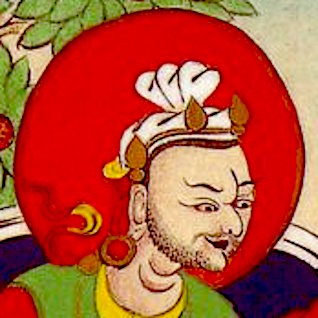 Lilapa LilapaMahasiddha #2 “He Who Loved the Dance of Life,” Lilapa was a king who wanted to become enlightened but didn’t want to leave the luxury and privilege of his kingdom. A wandering yogin gave him practices he could do surrounded by his riches, power, musicians, and wives. He devotedly practiced, attained realization, and became famous for his philanthropy and kind goodness. Like Epicurus in the West, Lilapa taught and exemplified how spiritual realization doesn’t depend on asceticism, rigid discipline, and self-denial but harmonizes more with appreciation, cheerfulness and respect. |
| Karmapa XVI | 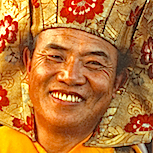 Karmapa XVI Karmapa XVI“Karmapa” means “Activity of All Buddhas” and the Karmapas were both leaders of the Kagyu tradition and traditional teachers to the Chinese Ming Dynasty Emperors. In this life, it meant leading his people in their escape from Tibet into India, across Asia, and into the West. A teacher to the royal families of Sikkim and Bhutan, his rigorous training began when he was 7 years old and though a religious leader not focused on politics, he helped th Dalai Lama during trips to China and unsuccessful negotiations with Mao and the Chinese government. He continued the Black Crown ceremonies begun by the 5th Karmapa and the Chinese Emperor Yung Lo and in the early 1970’s predicted the Chinese invasion as well as the Western world’s openness and acceptance of Buddhism. |
| Shantipa |  Shantipa ShantipaMahasiddha #12 “Keeper of the Southern Gate,” student of Naropa, teacher of Atisa, and an academic famous throughout ancient India; Shantipa was invited by the king of Sri Lanka to teach his people. He visited the island with 2000 monks and big baskets of Dharma texts carried by horses and oxen. Welcomed by the people with joy, openness, and excitement, he taught the Buddhist teachings for 3 years and received immense and valuable gifts, honor and fame. Returning to India he met one of his earlier disciples, Kotalipa who had become a Mahasiddha himself. This made Shantipa realize that he was seduced the words of his own teachings and had missed the sense. He became a disciple of his disciple, began his practice again at a very old age, and eventually realized the sense beneath the words he had expounded for so many decades. |
| John Wilmot, Earl of Rochester | 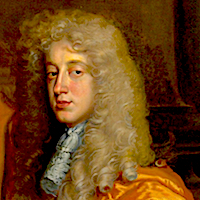 John Wilmot, Earl of Rochester John Wilmot, Earl of RochesterA poetic shock to the Puritanical world-view “Notorious libertine,” poet, friend to a king, "the best English satirist;” Wilmot spear-headed the swing away from the Puritan era. His “rakish” poetry shocked the status quo, was censored in the Victorian era, and regained popularity in the 1920’s influencing writers like Graham Greene and Ezra Pound. Famous and influential in his own time, he expanded the crumbling cracks in the Puritanical world view; but, died for his efforts from alcoholism and venereal diseases at only 33. |
| Buckminster Fuller | 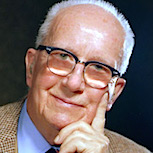 Buckminster Fuller Buckminster Fuller“One of the greatest minds of our times," pioneering solution-solver doing "more with less,” poet, engineering and inventor-genius with 25 patents; Bucky developed a comprehensive and practical perspective on ways to solve world problems. Expelled from Harvard in 1913 and also in 1915 (he later received 47 honorary doctorate degrees) and on the verge of suicide in 1927 when his construction company failed, he went into a 2-year reclusive retreat emerging as one of our greatest global thinkers. His inventions include a winch to rescue boats, a way to better produce concrete buildings, the World Game, the Dymaxion™ house, car, bathroom, grain bin, and many as well as the geodesic dome with now more than 300,000 in use everywhere from African villages to remote radar stations to children’s playgrounds. Advocate of "a one-town world,” seeing ourselves on "spaceship earth,” and the world as one living system; he inspired tens of thousands of sustainability pioneers. |
| Herodotus | 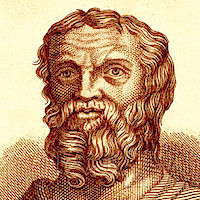 Herodotus Herodotus“The Father of History” “The Father of History” and first known historian to systematically collect and investigate facts, Herodotus described the purpose of his efforts “to prevent the traces of human events from being erased by time, and to preserve the fame of the important and remarkable achievements.” While the accuracy of his accounts is often questioned, he worked hard to corroborate his stories. From an internationally-minded port city and widely traveled, he describes many of his accounts from an eye-witness perspective. With an overarching theme of civilizations in conflict, he collected oral histories during his travels, thought about their meanings and interpreted them. Not only reporting on ancient science, he also speculated on scientific, cultural, geographical, and historical questions. His role in bringing ancient wisdom into modern understanding is immense. |
| Henry Thomas Buckle | 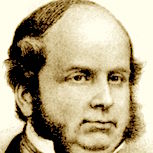 Henry Thomas Buckle Henry Thomas Buckle “The Father of Scientific History,” son of a wealthy London merchant and shipowner, one of the world’s best chess players of his time, and winner of the first British chess tournament; Buckle was homeschooled with only one year of formal education. He loved reading, collected over 22,000 books, and taught himself eighteen foreign languages saying, “I was never much tormented with what is called education.” Though with good reason, his works were highly criticized; he pioneered an approach toward history and a scope of vision later taken up and accomplished by Will and Ariel Durant. |
| Abbakka Chowta | 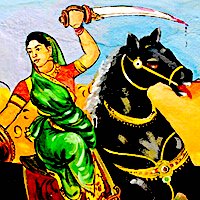 Abbakka Chowta Abbakka ChowtaFirst Indian, woman freedom fighter “The fearless queen,” Jain sage, warrior, and “first woman freedom fighter of India;” Abhaya Rani was one of the first to resist European colonial attacks. She skillfully fought against the Dutch and British as well as preventing the Portuguese from capturing Ullal several times. Along with fellow Jains, she included Hindus and Muslims in her administration, people from all sects and castes in her armies. Betrayed by an estranged husband, she was finally captured and imprisoned; but, she didn’t give up, broke out, and died fighting. More than 500 years now after her life, she is still revered and celebrated throughout India with stamps, statues, roads, ocean vessels, and festivals named after her. |
| Gabriel García Márquez | 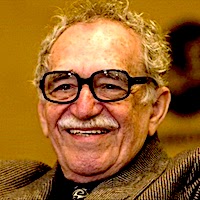 Gabriel García Márquez Gabriel García MárquezThe greatest Colombian “The greatest Colombian who ever lived,” journalist, newspaper editor, 1st Colombian and 4th Latin American Nobel Prize winner, and the best and most popular Spanish writer since Cervantes; Gabriel García Márquez quickly became a respected and influential critic of Latin American politics. He popularized the writing style now called magical realism that has now pervaded modern literature and film, perhaps reaching a peak in the writings of Haruki Murakami. Fellow Nobel Prize winner, William Kennedy called his book, One Hundred Years of Solitude "the first piece of literature since the Book of Genesis that should be required reading for the entire human race" but he was labeled a “subversive” and denied US visas until Bill Clinton called this book his favorite novel and lifted the travel ban. An active, anti-imperialist socialist, his muck-racking journalism led to an exile in Europe and relocation in Mexico but his fame opened political doors and he became an important influence on Cuban president Fidel Castro, other Latin American leaders, and on negotiations between the Colombian government and guerrilla groups. |
| Sima Guang | 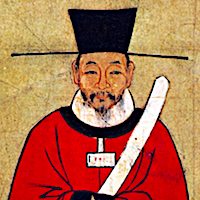 Sima Guang Sima Guang"Greatest of all Chinese historians” “The greatest of all Chinese historians,” politician, scholar-official, and major cat-breeder; Sima Guang opposed Wang Anshi's reforms to help the poor against the rich but wrote a pioneering, universal history of China that influenced the world’s political evolution. Also a lexicographer, he spent decades writing his time’s most comprehensive dictionary that included 31,319 Chinese characters. His book, Family Precepts (司馬溫公家訓) became a powerful influence on both Chinese and Japanese culture. A genius with a monumental memory, Sima’s quick thinking when he was only 7 famously saved the life of his friend. He loved reading "to the point of not recognizing hunger, thirst, coldness or heat” and when involved with a complicated writing project, he slept on a wooden log so he would sleep less and be able to work more. His scholarship—far from just intellectual speculation—became a guiding force for emperors but during his life and after his death. |
| Sarah Bernhardt | 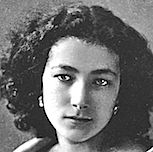 Sarah Bernhardt Sarah Bernhardt“One of the finest actors of all time” “The most famous actress the world has ever known", “one of the finest actors of all time,” “first international entertainment icon,” and “notorious liar;” Sarah Bernhard acted and sang for over 60 years starring in many of the earliest films ever made. Admired by everyone from Sigmund Freud to Mark Twain to Czar Alexander III, her mother was a prostitute and Sarah forged a birth certificate to claim French citizenship. Expelled from her first acting school for slapping a fellow actress, Sarah became mistress to a Belgian prince, to a famous courtesan, and slept in a coffin to better understand tragedy. During a war she converted her theatre into a hospital and took care of wounded soldiers. |